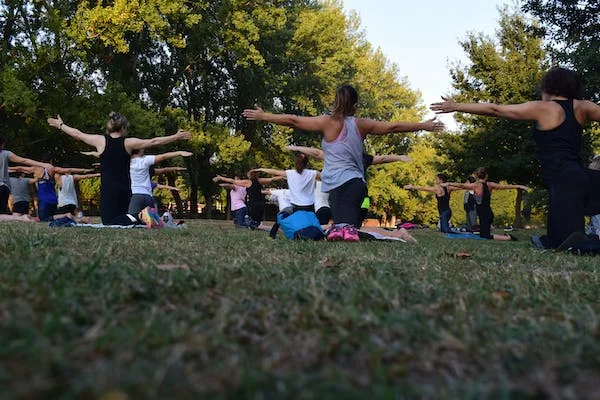10 Surprising Ways Physical Activity Boosts Your Brainpower

Physical activity is often associated with its positive effects on physical health, but its benefits extend far beyond just keeping your body fit. Engaging in regular exercise has a profound impact on brainpower and cognitive function. In this article, we will explore ten surprising ways in which physical activity can boost your brainpower and enhance your overall well-being.
Table of Contents
Introduction
Maintaining an active lifestyle is crucial for both physical and mental health. While the physical benefits of exercise are well-known, the effects on brain health and cognitive function are often overlooked. However, numerous studies have shown that physical activity can significantly improve brainpower and have a positive impact on various cognitive functions.
The Importance of Physical Activity for Overall Health
Physical activity plays a vital role in maintaining and enhancing overall health and well-being. Engaging in regular exercise not only improves physical fitness but also has a profound impact on mental, emotional, and cognitive health. Now, we will explore the importance of these activities for various aspects of our well-being and how they contributes to a healthier and more fulfilling life.
Physical Health Benefits
Regular physical activity offers numerous benefits for our physical health. It helps in managing weight, reducing the risk of chronic diseases, and enhancing cardiovascular fitness. Through exercise, we strengthen our muscles, bones, and joints, improving overall mobility and flexibility. Additionally, physical activity boosts the immune system, reducing the risk of illnesses and promoting better overall health.
Mental and Emotional Well-being
Physical activity has a significant impact on mental and emotional well-being. Regular exercise helps reduce symptoms of anxiety and depression by releasing endorphins, which are natural mood enhancers. Engaging in these activities also alleviates stress, improves sleep quality, and enhances overall cognitive function. It provides an opportunity to disconnect from daily pressures and promotes a sense of relaxation and well-being.
Cognitive Function and Brain Health
The benefits of physical activity extend to our cognitive function and brain health. Regular exercise has been linked to improved memory, attention, and learning abilities. It enhances neuroplasticity, the brain’s ability to reorganize and form new connections, which contributes to better cognitive performance. These activities also promotes better blood flow to the brain, delivering oxygen and nutrients essential for optimal brain function.
Disease Prevention and Longevity
Engaging in regular physical activity is crucial for disease prevention and promoting longevity. It reduces the risk of chronic conditions such as heart disease, diabetes, and certain types of cancer. Regular exercise also helps manage blood pressure and cholesterol levels, improving overall cardiovascular health. Furthermore, these activities play a vital role in maintaining a healthy weight, which is associated with a lower risk of various health issues.
Improved Quality of Life
Physical activity enhances our overall quality of life. It boosts energy levels, improves productivity, and enhances our ability to perform daily tasks with ease. Regular exercise promotes a positive body image and self-esteem, leading to increased self-confidence and a more positive outlook on life. Engaging in physical activities also provides opportunities for social interaction, fostering connections with others and enhancing our social well-being.
How Physical Activity Boosts Brainpower
Increased Oxygen Flow to the Brain
One of the key ways in which physical activity enhances brainpower is by increasing the flow of oxygen to the brain. Exercise promotes better blood circulation, allowing more oxygen-rich blood to reach the brain. This surge of oxygen supports optimal brain function and enhances cognitive abilities.
Enhanced Cognitive Functions
Regular physical activity has been linked to improved cognitive functions. It positively affects various cognitive abilities, including memory, focus, attention, and overall mental agility. Now, let’s delve into the specifics and explore these benefits in greater detail.
Improved Memory
Engaging in physical activity has been shown to improve memory and information retention. Exercise stimulates the release of chemicals in the brain that promote the growth of new neurons and strengthen existing neural connections. This process, known as neurogenesis, contributes to better memory formation and recall.
Increased Focus and Attention
Physical activity also enhances focus and attention span. The increased blood flow and oxygen delivery to the brain during exercise support optimal neural activity, leading to improved concentration and the ability to stay engaged in tasks for longer periods.
Enhanced Creativity and Problem-Solving Skills
Regular exercise has been found to enhance creativity and problem-solving skills. These activities stimulates the production of neurotransmitters like dopamine and endorphins, which are known to boost mood and enhance cognitive flexibility. These effects can lead to increased creativity and improved problem-solving
skills, allowing individuals to think outside the box and come up with innovative solutions.
Reduced Stress and Improved Mood
Physical activity plays a crucial role in reducing stress and improving mood. When you engage in exercise, your body releases endorphins, often referred to as “feel-good” hormones. These endorphins act as natural mood elevators, reducing feelings of stress and anxiety. Regular activities has even been shown to be as effective as medication in treating mild to moderate depression.
Physical Activity and Brain Health
Prevention of Cognitive Decline and Age-Related Diseases
Engaging in regular physical activity can help protect against cognitive decline and age-related diseases such as Alzheimer’s and dementia. Studies have shown that individuals who maintain an active lifestyle have a lower risk of developing these conditions. Exercise promotes the growth of new brain cells and strengthens neural connections, effectively slowing down age-related cognitive decline.
Promotion of Neuroplasticity
Neuroplasticity is a remarkable capability of the brain that allows it to restructure and establish fresh neural connections throughout an individual’s lifespan. Physical activity has been found to enhance neuroplasticity, making the brain more adaptable and resilient. This means that engaging in regular exercise can improve the brain’s ability to learn, adapt, and recover from injuries or trauma.
The Role of Exercise in Mental Health
Alleviation of Symptoms of Depression and Anxiety
Exercise has a profound impact on mental health, particularly in alleviating symptoms of depression and anxiety. These activities stimulates the production of endorphins, which act as natural mood boosters. Additionally, exercise provides a distraction from negative thoughts, promotes social interaction, and improves self-esteem, all of which contribute to improved mental well-being.
Boosting Self-Esteem and Confidence
Regular physical activity can boost self-esteem and confidence levels. Achieving personal fitness goals, such as running a certain distance or lifting a certain weight, can instill a sense of accomplishment and self-worth. Moreover, exercise can improve body image and promote a positive self-perception, leading to increased self-confidence in various aspects of life.
Physical Activity and Learning Abilities
Improved Academic Performance
Engaging in physical activity has been shown to have a positive impact on academic performance, particularly in children and adolescents. Regular exercise improves blood flow to the brain, enhancing concentration, focus, and information retention. Physical activity also promotes better sleep, which is essential for optimal cognitive function and academic success.
Enhanced Information Retention and Processing
Physical activity has a direct influence on information retention and processing abilities. Exercise increases the production of growth factors in the brain, which support the survival and functioning of neurons. This leads to improved synaptic plasticity, allowing for better encoding, storage, and retrieval of information.
Incorporating Physical Activity into Daily Life
Finding Enjoyable Activities
To make physical activity a sustainable part of your routine, it’s important to find activities that you enjoy. Whether it’s swimming, dancing, hiking, or playing a sport, engaging in activities that bring you pleasure will make it easier to stay motivated and committed to regular exercise.
Setting Realistic Goals
When starting a physical activity regimen, it’s important to set realistic goals that are specific, measurable, achievable, relevant, and time-bound (SMART goals). This approach helps you stay focused and provides a sense of accomplishment as you achieve milestones along the way.
Physical Activity for Different Age Groups
Children and Adolescents
Regular physical activity is crucial for children and adolescents. It not only promotes physical health but also contributes to the development of cognitive skills, social interaction, and overall well-being. Encouraging activities such as sports, dance, and outdoor play can help children establish healthy exercise habits early on.
Adults
Physical activity remains important throughout adulthood. Engaging in regular exercise can help maintain cognitive
function, reduce the risk of age-related cognitive decline, and improve overall brain health. Adults can benefit from a combination of aerobic exercises, strength training, and flexibility exercises to achieve optimal results.
Older Adults
Physical activity is equally important for older adults. Regular exercise can help improve cognitive function, memory, and attention in older individuals. It also helps maintain mobility, balance, and coordination, reducing the risk of falls and maintaining independence as they age. Activities like walking, swimming, and gentle yoga are excellent choices for older adults.
Tips for Getting Started
Consultation with Healthcare Professionals
Before starting any new exercise routine, it’s advisable to consult with healthcare professionals, especially if you have any underlying health conditions. They can provide guidance and recommend appropriate exercises based on your individual needs and abilities.
Starting Slow and Gradually Increasing Intensity
If you’re new to exercise or have been inactive for a while, it’s important to start slow and gradually increase the intensity and duration of your workouts. This approach helps prevent injuries and allows your body to adjust to the physical demands over time.
Choosing Activities That Match Personal Preferences
To maintain long-term adherence to an exercise routine, it’s crucial to choose activities that align with your personal preferences and interests. Whether it’s dancing, cycling, gardening, or playing a team sport, finding activities that you genuinely enjoy will make it easier to stay motivated and committed.
Conclusion
Physical activity is not only beneficial for physical health but also has numerous positive effects on brainpower and cognitive function. Engaging in regular exercise can enhance memory, focus, creativity, and problem-solving skills. It also promotes brain health, protects against cognitive decline, and improves mental well-being. By incorporating physical activity into daily life and following the tips mentioned, individuals of all ages can reap the remarkable benefits for their brain and overall well-being.
FAQs
1. Can physical activity really improve brainpower?
Yes, physical activity has been shown to improve brainpower by increasing oxygen flow to the brain, enhancing cognitive functions, and promoting neuroplasticity.
2. How much physical activity should I engage in to experience these benefits?
The recommended amount of physical activity varies depending on age and individual circumstances. However, aiming for at least 150 minutes of moderate-intensity aerobic activity or 75 minutes of vigorous-intensity activity per week is a good starting point.
3. Can physical activity help with age-related memory decline?
Yes, regular physical activity can help prevent age-related memory decline by promoting neuroplasticity, improving blood flow to the brain, and supporting the growth of new brain cells.
4. What are some fun activities I can try to boost my brainpower?
Activities such as dancing, playing a musical instrument, learning a new language, solving puzzles or brainteasers, and engaging in strategic games like chess or Sudoku can help boost brainpower.
5. Is there a specific time of day that is best for physical activity?
The best time for physical activity is the time that works best for you and fits into your schedule. Some people prefer morning workouts to kickstart their day, while others find evening exercises more energizing. The key is to find a time that you can consistently commit to and enjoy.
For more valuable information stay connected


